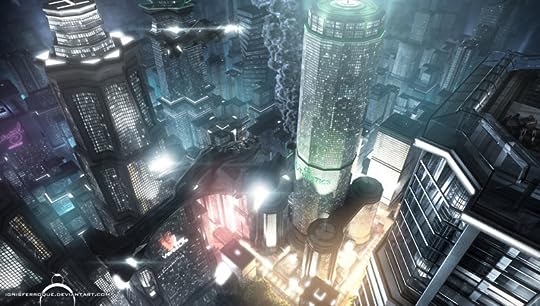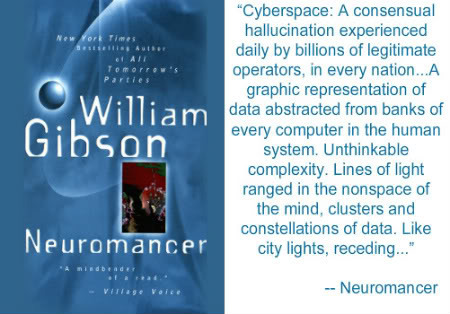What do you think?
Rate this book


288 pages, Kindle Edition
First published January 1, 1984


They damaged his nervous system with a wartime Russian mycotoxin. Strapped to a bed in a Memphis hotel, his talent burning out micron by micron, he hallucinated for thirty hours. The damage was minute, subtle, and utterly effective. For Case, who'd lived for the bodiless exultation of cyberspace, it was the Fall.Since his involuntary exile from the matrix, Case has become self-destructive and suicidal and is hell bent on shuffling off this mortal coil but is unwilling or unable to accomplish the task himself.
A year here and he still dreamed of cyberspace, hope fading nightly. All the speed he took, all the turns he'd taken and the corners he'd cut in Night City, and he'd still see the matrix in his sleep, bright lattices of logic unfolding across that colorless void… The Sprawl was a long strange way home over the Pacific now, and he was no console man, no cyberspace cowboy. Just another hustler, trying to make it through. But the dreams came on in the Japanese night like livewire voodoo, and he'd cry for it, cry in his sleep, and wake alone in the dark, curled in his capsule in some coffin hotel, his hands clawed into the bedslab, temperfoam bunched between his fingers, trying to reach the console that wasn't there.in his "i wanna die" despondency, Case has been taking the most dangerous scores, the biggest risks, all along waiting for someone to put him out of his “meat-trapped” misery.
The drug hit him like an express train, a white-hot column of light mounting his spine from the region of his prostate, illuminating the sutures of his skull with x-rays of short-circuited sexual energy. His teeth sang in their individual sockets like tuning forks, each one pitch-perfect and clear as ethanol. His bones, beneath the hazy envelope of flesh, were chromed and polished, the joints lubricated with a film of silicone. Sandstorms raged across the scoured floor of his skull, generating waves of high thin static that broke behind his eyes, spheres of purest crystal, expanding...The anger was expanding, relentless, exponential, riding out behind the betaphenethylamine rush like a carrier wave, a seismic fluid, rich and corrosive.Yeah, I am a big, big fan. In case I wasn't clear about that before, I don’t want you to think I was being wishy-washy. Before i wrap up, here is one more example of the visual, visceral nature of Gibson’s verse:
Night City was like a deranged experiment in social Darwinism, designed by a bored researcher who kept one thumb permanently on the fast-forward button. Stop hustling and you sank without a trace, but move a little too swiftly and you'd break the fragile surface tension of the black market; either way, you were gone, with nothing left of you but some vague memory in the mind of a fixture like Ratz, though heart or lungs or kidneys might survive in the service of some stranger with New Yen for the clinic tanks.A unique, important and truly amazing reading experience and it only took me three tries to realize it. DOH!!!!

The sky above the port was the color of television, tuned to a dead channel.Science fiction is one of my favorite genres, using different worlds or possible futures to say something about our present condition. The Time Machine. Jurassic Park. This Is How You Lose the Time War. As part of reading my way through the Pop Chart 100 Essential Novels list, I finally made the time to read Neuromancer, another sci-fi classic that has lurked on my TBR pile for years.


